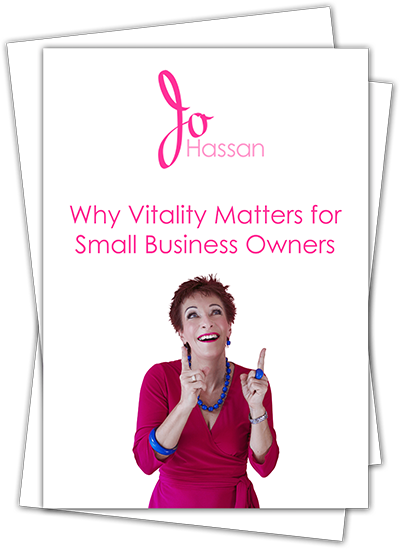Right now 9 years ago I was in “re-group” mode after experiencing a category 5 cyclone in Fiji. They called it Tropical Cyclone Evan.
It was terrifying, a HUGE learning experience and we expressed tremendous gratitude for the fact that we were safe, almost all at the same time.
I say “almost all” because we didn’t actually know until afterwards that we were actually safe. At one point we tried to stop horizontal rain coming through the windows with bath towels!
It didn’t work.
When a cyclone passes over, after intense wind (for a category 5, greater than 279 km/h) there is a calmness. Everything “stops”. They call it the “eye” and how long it lasts depends on how wide the storm is.
To be completely honest I can’t remember exactly how long this reprieve lasted but I’m going to guess in 24 hours of terror it lasted an hour.
And when the calmness stops and the mayhem resumes it means you’re past halfway.
With respect to last year and this year, we have to hope we’re past “halfway” but the reality is we have no idea… for some aspects of our lives it’s hard to remember from when and what… to what… and when?
Right now we can’t possibly know what the future holds and we’ve long since stopped asking what a “new normal” might look like, so we’re best to assume “normal” is what’s happening now! And try to manage our vitality and PEPP® and energy and all other aspects of our lives around that.
As humans we can draw on short-term survival in acutely stressful situations such as natural disasters like a cyclone. But natural disasters usually occur over a short period, even if recovery is long. What we are living through now is different – the disaster itself seems to be stretching out indefinitely…
For many our vitality or PEPP® are depleted and need to be renewed. But what happens when you struggle to renew them because the situation has now become chronic?”
And have you given this time in your life a name, in the same way that cyclones are named?
“The world” is not in a cyclone!
As mentioned above, being in a cyclone was one of the most terrifying experiences of my life. We had a couple of days to prepare and we’d seen images of cyclones many times; unlike what the world is experiencing now we had a reference point you might say.
Whilst it was the worst cyclone to cross Fiji in 20 years, we knew we were staying in a great hotel (Hilton) that had systems in place to give us the best chance of staying safe. These included:
- Being in a room made of bricks
- Constant updates about the weather
- Taped windows
- Sun lounges were taken to the beach, turned upside down and filled with sand so they didn’t become missiles/blow away
- Food rations
- Torches
Advice to fill the bath with water (in case pipes burst) and put suitcases on top of the wardrobe (as we were on the ground floor and there may be a tidal surge to flood our room even more than from the rain). This was really hard by the way – have you ever tried to lift a full suitcase on top of a wardrobe where there isn’t much space? Note to self to remember that when packing next time!
| We stayed in our room for 24 hours and then a massive clean-up began. My son and his friends got in the pool and were part of a chain gang where restaurant furniture was passed along and dunked in the pool for its first clean. (He’s the one here with a table on his head!)
You can’t necessarily see when people are struggling And unlike the cyclone, where it was “all hands on deck” to make good as early as possible and everyone could see physical damage, in this situation, just like with mental illness, people are suffering and you can’t necessarily see it. And most people aren’t talking about it because even now some people still believe there is stigma attached to not coping so they suffer in silence. In the work I have been doing for over 15 years as a business coach, and speaking for the last few years about the vitality of people and organisations, even before the last couple of years I saw mental illness as a battle people are fighting every day in some form. If it is not themselves it is a team member or family member. What can we do? The first step is awareness and taking care of ourselves before we can support others. And looking after ourselves includes having what cardiothoracic surgeon Michael Maddaus calls a “Resilience Bank Account”. To make “deposits” to this account involves looking after ourselves in 8 areas:
Additionally he talks about the benefits of having projects to work on when the outcome is independent of what else is going on in the world. Our bodies and minds enjoy project planning and outcomes. We might not see the value in making a detailed plan today for an overseas holiday but we could plan and then action sorting out family photos or, in his case “changing every shower head and light bulb in the house”. There is planning and vicarious satisfaction from doing the job that is nothing to do with what else is going on in the world…assuming shower heads and bulbs are available to purchase! Outcomeless activities To this end to maintain my own vitality, I often engage in what I call “outcomeless activities”. Yes, there are absolutely times when we need to work with a plan and purpose and have some sort of a profit goal but, I also absolutely believe that there are times when, to keep our energy in check, we need to deliberately do some activities without an end in mind, often for the sheer pleasure of it. Some ideas are:
In my world there is definitely an overlap between keeping your PEPP® up and the Resilience Bank Account. Is there anything I may help you with? Early in 2022 I’ll again be offering a variety of options – online and in person, half day and longer workshops – to help people PEPP® up and “kick start” the year with some different perspectives. The PEPP® Express Program is an ideal way to give your vitality or PEPP® an instant boost. Well almost instantly… 3 hours and then some “keeping on track” follow up. I work with a variety of people; leaders and business owners, as individuals or as part of a group, as well as their teams. If you’d like to know more, please reach out by DM Jo Hassan or emailing jo@johassan.com. Please remember to continually make deposits to the Resilience Bank Account and regularly do some “outcomeless activities”. I’d love to know your favourite… please share! And, lastly, check here for details of one of the first PEPP® Express Programs of 2022. Your vitality or PEPP® will thank you. |


Leave A Comment